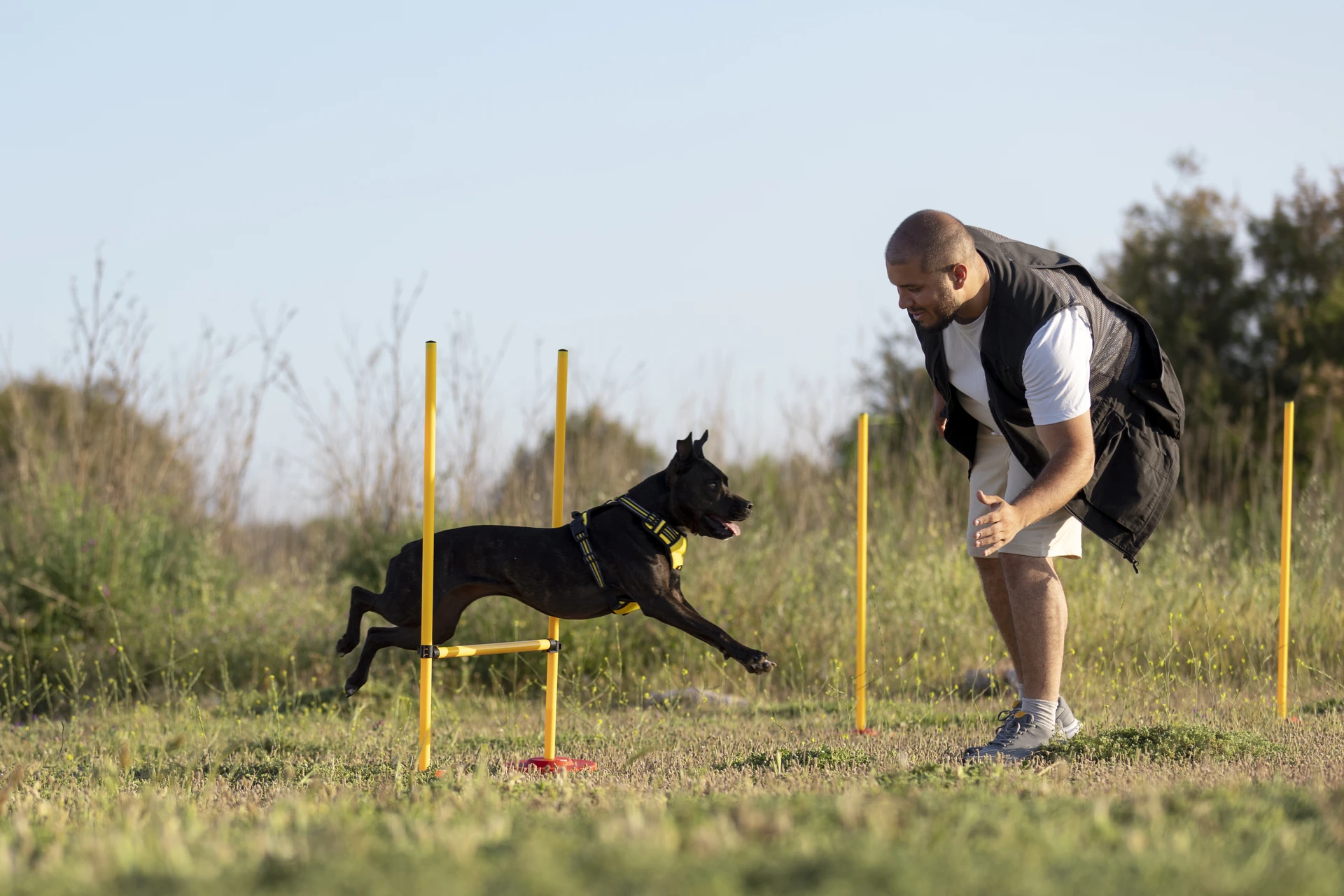As dogs grow older, they naturally experience changes in their physical capabilities, stamina, and even cognitive function. For protection dogs, this transition requires a considered approach. These dogs are highly trained, dependable companions used in security roles, private protection, and sometimes family safety. Maintaining their skills and fitness is essential not only for performance but also for their overall well-being.
Whether you’re a professional handler or a dedicated owner, knowing how to support your dog’s changing needs helps extend their working life while preserving their quality of life.
Understanding the Ageing Process in Protection Dogs
Dogs go through many changes as they get older, just like people do. Some of these are having less energy, stiff joints, taking longer to react, and even changes in your vision or hearing. Some dog breeds, like German Shepherds, Belgian Malinois, and Rottweilers, that are used for defence work may also be more likely to get health problems that get worse with age, like hip dysplasia or arthritis.
Recognising early signs of decline and taking action is an important part of ensuring a good level of care. For example, a professional dog trainer who works with LinkK9 dogs will usually check the dogs regularly to see if they are having problems with mobility, responsiveness, and behaviour changes.
Supporting Your Dog’s Physical Condition with Age
When your protection dog reaches its senior years, its body naturally begins to slow. Muscle tone decreases, joints tighten, and the risk of injury increases. However, with the right support, you may extend your dog’s active years and improve its overall quality of life.
Regular, Gentle Exercise:
Older dogs need to exercise. Walking adjusted to their energy levels improves muscular tone and joint lubrication, while they may not chase or run anymore. Swimming is another low-impact exercise that strengthens older joints.
Tailored Nutrition Plans:
Senior dogs need diets that support joint health and digestive efficiency, just like younger working dogs need protein-rich meals to maintain muscle strength. See a veterinary nutritionist to adjust meals to your dog’s changing needs, which may include omega-3s or glucosamine.
Frequent Veterinary Check-Ups:
Preventive care becomes especially crucial for elderly canines. Regular checkups can detect arthritis, hip dysplasia, and heart issues before they affect your dog’s health. Your vet may suggest workout changes or mobility treatments.
Training Strategies to Keep Skills Sharp in Senior Years
Mental sharpness is as important as physical fitness. If learnt behaviours and responses are reinforced, an elderly protection dog can remain effective. Adapting training requires patience and realistic expectations.
Shorter, More Frequent Training Sessions:
Older canines may tire faster. Break up extensive workouts into smaller ones. This keeps enthusiasm and avoids tiredness. Once or twice a day, five to ten minutes of training can reinforce crucial protective orders and obedience.
Use Positive Reinforcement:
Avoid harsh corrections, especially as your dog ages. Praise, toys, and incentives boost engagement and minimise stress. Older dogs coping with cognitive change benefit from familiar routines.
Incorporate Low-Stress Simulations:
Safe, realistic roleplay stimulates your dog’s instincts. For instance, fake intruder scenarios or controlled challenges might replicate workplaces. Avoid quick tackles and violent restraints, and keep events predictable.
Cognitive Enrichment:
Puzzle feeders, scent-based games, and new environments help older dogs remain alert. A strong sense of purpose and variety supports brain function, which may help delay the onset of canine cognitive dysfunction.
Adjusting Expectations Without Compromising Role
While it’s important to maintain a protection dog’s abilities, it’s also essential to recognise the signs that tasks need to be scaled back.
Know When to Step Back:
Lack of interest in activities, being irritable, and feeling tired can all be signs that your dog needs to rest. Your dog may need to move on to a less active security role or retire in a calm home setting if it can’t handle the physical demands of a demanding job.
Support Through Adaptation:
Many owners choose to pair older protection dogs with younger, newer recruits. This provides companionship for the older dog and an opportunity for the experienced animal to act as a mentor in controlled settings.
Mental Wellbeing is Key:
A dog’s value does not diminish with age. Make time for play, comfort, and interaction. Continued bonding with owners or handlers provides reassurance and helps reduce age-related stress or anxiety.
The Role of the Handler in Long-Term Maintenance
Your relationship with your protection dog underpins its longevity. Clear communication, trust, and consistency are vital. Older dogs often rely more heavily on routine and handler predictability.
Be Observant and Flexible:
The best handlers can spot small changes in behaviour or movement before they become bigger issues. Respond to discomfort with adjustments, such as modified commands or alternative routes for daily walks.
Training for Retirement:
When full retirement becomes the appropriate path, gradually shift your dog’s schedule to reduce its operational tasks. This transition should be slow and supported with positive reinforcement. You may still maintain light training for stimulation without the pressure of performance.
Long-Term Value of Experienced Protection Dogs
Protective dogs that are getting older need more than just basic care. They need to keep their bodies strong, their skills sharp, and their sense of purpose alive. Health and skill maintenance are the best ways to show appreciation for a dog’s help, whether you’re working with a LinkK9 dog or training your own pet.
Don’t forget that how we help these dogs as they get older is just as important as what they can still do. Security dogs can live full, busy lives well into old age if they are trained, cared for, and dedicated.

